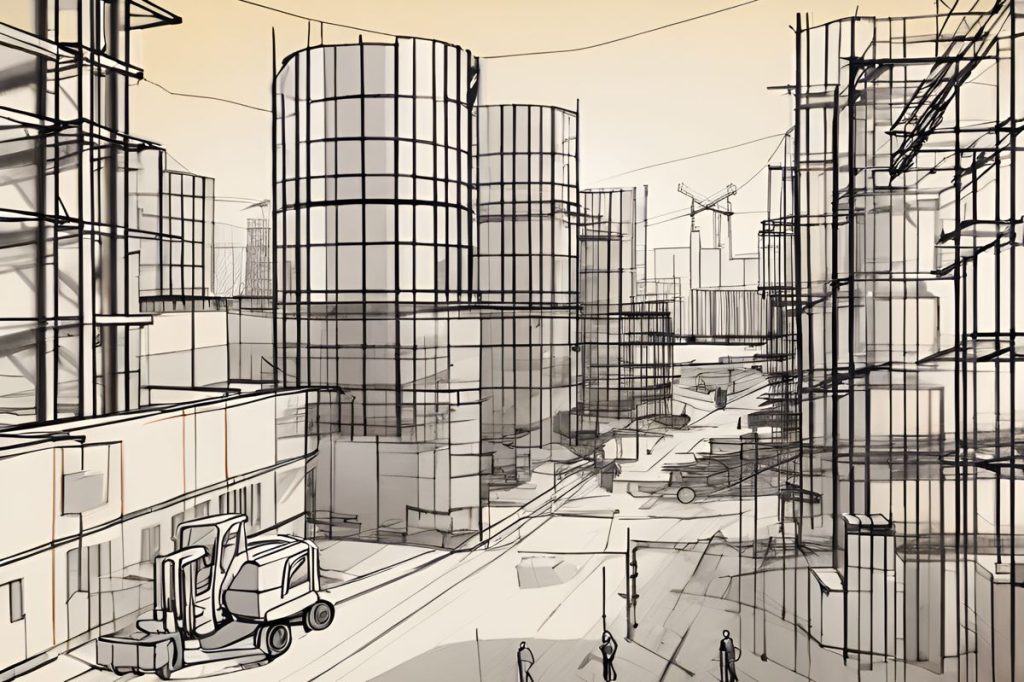The Cyprus construction sector has experienced significant growth, with building permits surging by 3.3 percent in count and 13.2 percent in value in Q1 2024. Residential unit permits saw a remarkable 20.7 percent increase, indicating strong development activity and a healthy economy ahead.
What is the recent trend in Cyprus’ construction sector based on building permits statistics?
The construction sector in Cyprus has seen significant growth, with building permits increasing by 3.3 percent in count and 13.2 percent in value in the first quarter of 2024 compared to the previous year. Residential unit permits rose by 20.7 percent, indicating strong development activity and economic health.
Cyprus has witnessed a substantial expansion in its construction sector, as depicted by the recent statistical analysis. The first quarter of 2024 has brought a boon to the architecture and housing landscape, with building permits reflecting robust growth both in count and overall worth.
Building Permits on the Rise
A report from the Cyprus Statistical Service reveals a promising increase in the issuance of building permits. Specifically, from January to March 2024, there’s been a 3.3 percent climb in the number of permits granted compared to the previous year. This growth signifies a positive shift in the construction industry, reflecting a broader economic vitality. Moreover, the value attached to these permits has soared to an impressive €730 million, showing a 13.2 percent uptick on a year-on-year basis.
The residential sector, in particular, enjoyed a notable surge. Permits for residential units jumped by 20.7 percent, indicating a renewed interest in housing development. This segment’s vitality is crucial, as it often serves as a bellwether for the overall health of the construction industry.
A Closer Look at the Categories
Delving deeper into the types of projects, civil engineering took the lead with a significant 18.9 percent rise in permits. The non-residential projects weren’t far behind, with a 10.7 percent increase, suggesting a positive outlook for commercial infrastructure and enterprise facilities. Despite this, permits for residential buildings saw a slight decrease of 0.6 percent.
Yet, the story is different when considering specific building types. Mixed-use apartment buildings, which combine residential and commercial space, skyrocketed by 177.6 percent. Residential apartment buildings also experienced substantial growth at 32.9 percent. In contrast, the demand for single-family houses and duplexes was lessened, with a decrease of 6.5 percent and 2.2 percent, respectively.
Spatial and Value Expansion
The total area covered by the new permits expanded to 626,442 square meters, accounting for a 12.2 percent increase from last year. Non-residential buildings led this expansion with a 35.2 percent increase in area, followed by civil engineering projects at 23.5 percent growth, and residential buildings at 6.6 percent.
In terms of monetary value, non-residential buildings’ permits depicted the largest increase at 15.4 percent. The growth was closely followed by civil engineering projects at 15.2 percent. Despite the slight dip in the number of residential building permits, their value defied the trend, surging by 13.5 percent. However, it is worth noting that the value of permits for land division and road construction witnessed a decline, falling by 8.5 percent and 4.2 percent, respectively.
Indicators of Future Construction Trends
Building permits serve as vital indicators for future construction activities. The increases in both the number and value of these permits suggest a robust pipeline of projects and a busy period ahead for the construction sector. This upswing is likely to contribute positively to the economy, signaling a period of development and growth that could impact various aspects of life in Cyprus.
Such trends are closely watched by investors, developers, and policymakers alike, as they can affect strategic decisions in urban planning, housing policies, and economic forecasting. The positive momentum in the construction sector heralds a dynamic phase for Cyprus, marked by development and progress.
What is the recent trend in Cyprus’ construction sector based on building permits statistics?
The construction sector in Cyprus has seen significant growth, with building permits increasing by 3.3 percent in count and 13.2 percent in value in the first quarter of 2024 compared to the previous year. Residential unit permits rose by 20.7 percent, indicating strong development activity and economic health.
What types of projects are experiencing growth according to the building permits data?
Civil engineering projects saw a significant 18.9 percent rise in permits, followed by non-residential projects with a 10.7 percent increase. Mixed-use apartment buildings had the highest growth at 177.6 percent, while single-family houses and duplexes experienced slight decreases.
How has the spatial coverage and monetary value of building permits changed recently in Cyprus?
The total area covered by new permits expanded by 12.2 percent, with non-residential buildings leading with a 35.2 percent increase in area. In terms of monetary value, non-residential buildings had the largest increase at 15.4 percent, followed closely by civil engineering projects at 15.2 percent.
What do the increased number and value of building permits indicate for the future of Cyprus’ construction sector?
The rise in both the number and value of building permits suggests a robust pipeline of projects and a busy period ahead for the construction sector in Cyprus. This positive trend is likely to contribute to the economy, signaling a period of development and growth that could impact various aspects of life in the country.

